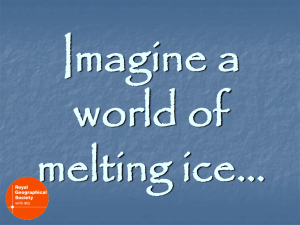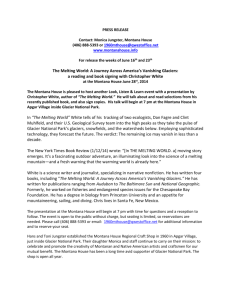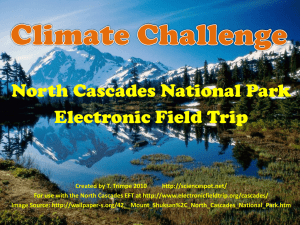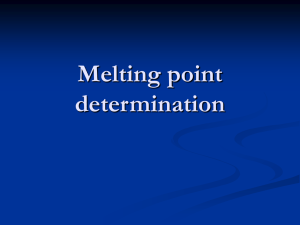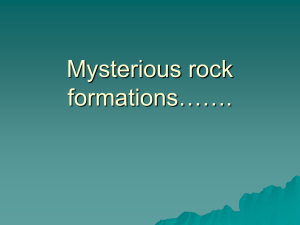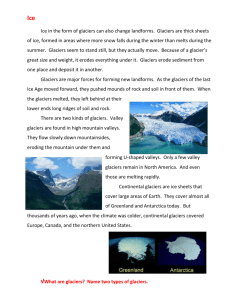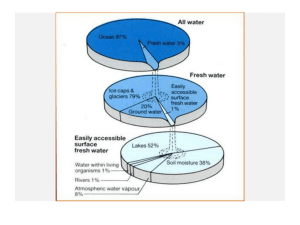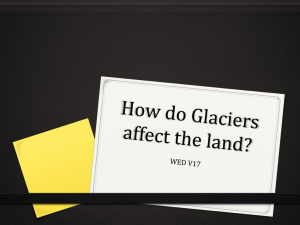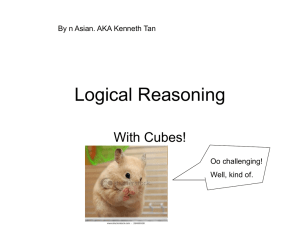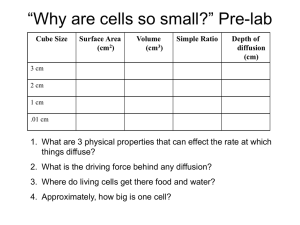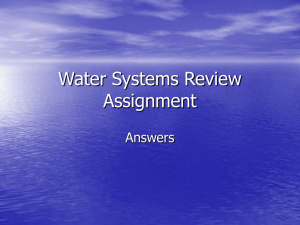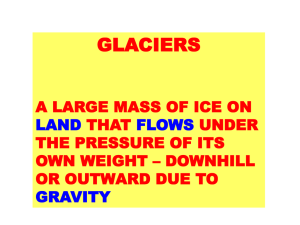glaciers
advertisement
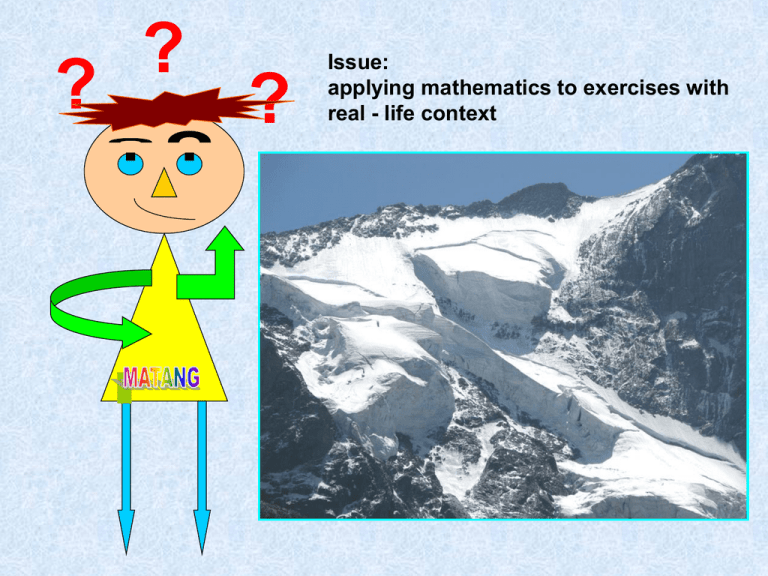
? ? ? Issue: applying mathematics to exercises with real - life context „What do you know about the greenhouse effect?” INTRODUCTION Do you know? - The greenhouse effect has a great impact especially on glaciers -Climate change, its getting warmer causes continuing melting process of glaciers -In constant climate conditions glaciers’ balance would not be disturbed - Rainfalls result in the growth of a glacier. When it reaches extreme size, the pressure causes its melting - The factors that increase the process of melting are: friction between the glacier and the ground as well as geothermal energy of the Earth - Temperature rise causes melting and withdrawal of glaciers - Glaciers’ melting is a long-lasting process due to their great mass. It was thought that glaciers might disappear completely after many years - An alarming phenomenon was noticed: climate getting results in huge changes warmer -There is a great difference between the same places now, and decades ago. A glacier of a dozen metres has become replaced with lakes and bare rocks Notice Pedersen Glacier’s change of the landscape; There is a meadow instead of a glacier. Źródło: globalwarmingart Glaciers are also disappearing in Europe This graph shows how little is going to remain of the Alpine glaciers providing they are under the influence of rising temperature. On Kilimanjaro, the highest African mountain, the glacier has already lost 80% of its mass Preserving the current speed of melting, the glacier on Kilimanjaro is expected to disappear by 2020-2030 . Source: NASA The speed of melting and growth of glaciers does not only depend on temperature. Another important factor is the amount of rainfall. Disappearing of glaciers started more than 100 years ago together with temperature rise connected with the growth of the Sun radiation, which has been continuing since the end of the 50’s in the 20th century. The current temperature rise caused mainly by the enlarged amount of greenhouse gases in the atmosphere causes further faster melting of glaciers. Exercises Task 1 There are three ice cubes in the shape of a cube with the edge of 1 inch each. Assuming that the melting will be taking place in the same conditions and time, determine in which case the ice cubes will melt faster: - Case 1 - Case 2 a) What kind of phenomenon can we observe in both cases? b) Justify your answer using the formula that describes this phenomenon: (Q:t)=k·S(ΔT:ΔL) c) Describe the meaning of every variable in the given formula. d) Calculate using the units of inch, centimetre and millimetre. Present the result with the accuracy of 0.01. Task 2 From an ice cube with the edge of 1 inch, a part was taken from its quoin. This part is a cuboid with the following dimensions: 0,25 inch, 0,5 inch, 0,25 inch. Will this “cut” cube melt faster than a normal one? Justify your answer using suitable calculations and the picture of the cubes. 1 in. Solution: The variables used in the given formula (Q/t)=k·S(ΔT/ΔL) denote: Q -……………………………………………. t -……………………………………………… (Q/t) -…………………………………………. ΔL -……………………………………………. S - …………………………………………….. ΔT -……………………………………………. Solution Task 1 : For three disjoint cubes there is S=……………………..inches2=………………..cm2=………………..=mm2 For one triple cube there is S=……………………..inches² =………………..cm² =………………..=mm² Solution Task 2 : For the whole cube S=……………………..inches² =………………..cm² =………………..=mm² The “Cut” cube has S=……………………..inches² =………………..cm² =………………..=mm² Prepared by : Małgorzata Fornal Monika Wrona Translated by : Justyna Niezgoda
